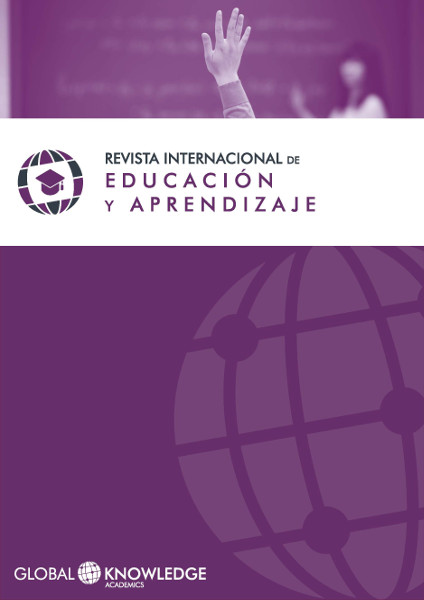Profile of Teacher Educators in Special Education: Impact on Improving Student Learning
DOI:
https://doi.org/10.37467/gka-revedu.v4.209Keywords:
Competition, Academic, Performance, QualityAbstract
It may be strange to have to accept that, despite the various investigations, there is currently no broad consensus on the traits and skills that should have the academic profile of the teacher educator in special education, the task involves providing quality education for the the constant updating and professional preparation is required, it is necessary to develop the basic skills trainer for teaching and impact their teaching methodology. This paper seeks to take the first steps to define the profile of the teacher educator in special education within the scope of the powers, the overall objective is to analyze the relationship between the profile and learning outcomes that students have achieved, as it is said that education is a human reality doubly because its subject of study is man and only he can also exercise and carry out similar.
Downloads
Global Statistics ℹ️
|
768
Views
|
5553
Downloads
|
|
6321
Total
|
|
References
Díaz-Barriga, F. (2004). Didáctica. Aportes para una polémica. Buenos Aires: Aique.
Grisales-Franco, L., González-Agudelo, E. (2009). El saber sabio y el saber enseñado: un problema para la didáctica universitaria. Educación y Educadores, 77-86.
Jarauta, B., Medina, J. L. (2012). Fuentes y procesos de aprendizaje docente en el contexto universitario. Revista Española de Pedagogía, 337-353.
Medina-Rodríguez, F, Andrade-Padilla, M. A., Rivera-Ibarra, D. B. (2009). Estimación de la postura ante la educación de médicos con y sin formación docente. Revista Medica Instituto Mexicano Seguro Social, 677-682.
Medley, D. (2009). The effectiveness of teachers. En P. Peterson y H. Walberg (Eds.), Research on teaching: Concepts, findings and implications (183-198). Berkeley: McCutchan.
Navío, A. (2006). Las competencias profesionales del formador: Una visión desde la formación continua. España: Octaedro.
Olmos-Miguelánez, S., Rodríguez-Conde, M.J. (2011). El profesorado universitario ante la eevaluación del aprendizaje. Revista Estudios sobre educación, 181-202.
Oviedo G. (2009). Competencias docentes para enfrentar la sociedad del conocimiento. Apertura. Revista De Innovación Educativa, 76-83.
Pérez, V. M. V., Valenzuela, C. N. F., Díaz, M. A., González Pienda, J. A., Núñez. P. J. C. (2011). Disposición y enfoques de apredizaje en estudiantes universitarios de primer año. Universitias Psychologica, 441-449. DOI: https://doi.org/10.11144/Javeriana.upsy10-2.deae
Reyes, S. O. (2012). Percepción de la calidad del servicio educativo universitario. Enfoque epistemológico transparadigmático. Mexicali, México: Académica Española.
Secretaría de Educación Pública. (2009). Sistema Nacional de Formación Continua y Superación Profesional de Maestros en Servicio. Dirección General de Formación Continua de Maestros en Servicio de la Subsecretaría de Educación Básica. México.
Sereno, D. P., Maisterrena, V.D. (2006). Propuesta de enseñanza y aprendizaje en el ámbito universitario basada en una perspectriva constructivista para el tema "vaca caída". Ciencia veterinaria.
Tejedor, F., García-Varcárcel, A. (2010). Evaluación del desempeño docente. Revista Española De Pedagogía, 439-459.
Downloads
Published
How to Cite
Issue
Section
License
Those authors who publish in this journal accept the following terms:
-
Authors retain copyright.
-
Authors transfer to the journal the right of first publication. The journal also owns the publishing rights.
-
All published contents are governed by an Attribution-NoDerivatives 4.0 International License.
Access the informative version and legal text of the license. By virtue of this, third parties are allowed to use what is published as long as they mention the authorship of the work and the first publication in this journal. If you transform the material, you may not distribute the modified work. -
Authors may make other independent and additional contractual arrangements for non-exclusive distribution of the version of the article published in this journal (e.g., inclusion in an institutional repository or publication in a book) as long as they clearly indicate that the work was first published in this journal.
- Authors are allowed and recommended to publish their work on the Internet (for example on institutional and personal websites), following the publication of, and referencing the journal, as this could lead to constructive exchanges and a more extensive and quick circulation of published works (see The Effect of Open Access).













